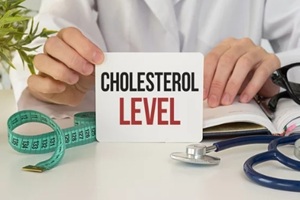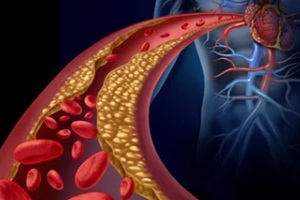 You probably already know that high cholesterol increases your chances of heart disease. That’s why your doctor orders a cholesterol screening to check your levels of “good” and “bad” cholesterol. Yet, a few factors can inadvertently affect your test results.
You probably already know that high cholesterol increases your chances of heart disease. That’s why your doctor orders a cholesterol screening to check your levels of “good” and “bad” cholesterol. Yet, a few factors can inadvertently affect your test results.
From mixing up lab samples to having a hard workout right before your cholesterol screening, mistakes happen more often than you’d think.
When you become aware of what goes on behind the scenes with cholesterol tests, you can help make sure your results paint an accurate picture. This provides you and your doctor with accurate information to make the right choices for protecting your heart.
Scheduling Errors That Skew Results
Taking a few simple steps when scheduling your screening can help avoid many common pitfalls.
Time Your Test Carefully
Many life circumstances naturally cause normal fluctuations in cholesterol screening levels. Your numbers tend to run higher when you’re sick or under major stress. They can also spike temporarily when you’re pregnant or right after giving birth.
Therefore, try not to schedule your screening during or right after one of these situations. The unusual numbers could prompt you and your doctor to take action that you don’t really need.
For example, suppose your cholesterol increased because you had a chest cold when you took the test. You and your doctor might think you need cholesterol medication immediately. Yet, once you recover, your levels may return to normal on their own.
You should also wait four months after delivering a baby to get screened. This gives your body enough time to normalize cholesterol production after pregnancy.
Avoid Post-Workout Tests
A tough workout can also cause a false high cholesterol reading if you get screened 12 to 24 hours later. Experts believe that the temporary inflammation caused by exercise can also lead to an increase in LDL cholesterol.
But the rise is short-lived, so don’t panic if you forget and work out hard the day before your test. Inform your doctor so they are aware that a repeat screening may be necessary before deciding on any treatment.
Medications Can Also Lead to Skewed Results
 Lots of medicines directly alter cholesterol production in the body. Tell your doctor about any new medications before your screening. Together, you can consider if they might temporarily skew your results.
Lots of medicines directly alter cholesterol production in the body. Tell your doctor about any new medications before your screening. Together, you can consider if they might temporarily skew your results.
For example, birth control pills, corticosteroids, and some antiretrovirals subtly impact cholesterol levels over time. Your doctor will consider medication interactions when interpreting your screening results.
Testing Tips for Accurate Results
Small details make a difference when it comes to landing on target with your cholesterol checkup. Follow these testing tips to minimize the chances of inaccurate readings:
- Ask to see your tech pull blood from a sealed sterile kit
- Verify they label tubes immediately with your exact name and birthdate
- Clearly repeat your identifying information aloud when asked
It seems unlikely, but sample mix-ups are more common than anyone wants to admit. Double-checking these small details takes mere seconds, but it can save you from mistaken results.
Genetic Traits That Raise Risk
In many cases, consistently high cholesterol screening levels runs in families. Researchers now recognize certain genetic traits that can cause stubbornly high cholesterol.
Tell your doctor if heart disease runs in your family. Having close relatives who battled high cholesterol or experienced a heart attack at a young age is an important clue.
Your doctor can check for familial high cholesterol, a genetic form that significantly raises cardiovascular risk. Catching it early allows you to aggressively manage it through medication and lifestyle. These proactive measures can protect your heart health for decades to come.
Question Unusual Results
Despite best efforts, testing inaccuracies sometimes happen. Clerical errors in recording your information or sample handling slipups can alter results.
On rare occasions, lab equipment defects throw off analyses. Mislabeled samples or clerical typos lead to accidental mix-ups between patients.
Thus, you should always question suspiciously abnormal cholesterol results that seem out of sync with your health status. Ask your doctor to promptly recheck anomalous scores to catch potential errors.
Schedule Your Cholesterol Screening in Durham, NC Today
 Minor mistakes in scheduling, testing protocols, and information sharing can lead to false results in cholesterol screenings. When errors occur, repeat testing generally spots the discrepancy. The good news is that excellent healthcare providers can help you make sure your readings are reliable and accurate.
Minor mistakes in scheduling, testing protocols, and information sharing can lead to false results in cholesterol screenings. When errors occur, repeat testing generally spots the discrepancy. The good news is that excellent healthcare providers can help you make sure your readings are reliable and accurate.
Imperial Center Family Medicine’s experienced clinicians prioritize careful attention to various factors that influence your risk of heart disease. We take time to listen to your health history and lifestyle to make an informed clinical assessment.
Our doctors utilize advanced cholesterol screening alongside cutting-edge diagnostic technology. This allows us to dig deeper when results seem skewed and identify genetic traits that raise your risk.
Contact us today at 919-873-4437 or online to learn more and schedule your cholesterol screening. Our knowledgeable clinicians make it their personal mission to safeguard your heart health for years to come.
